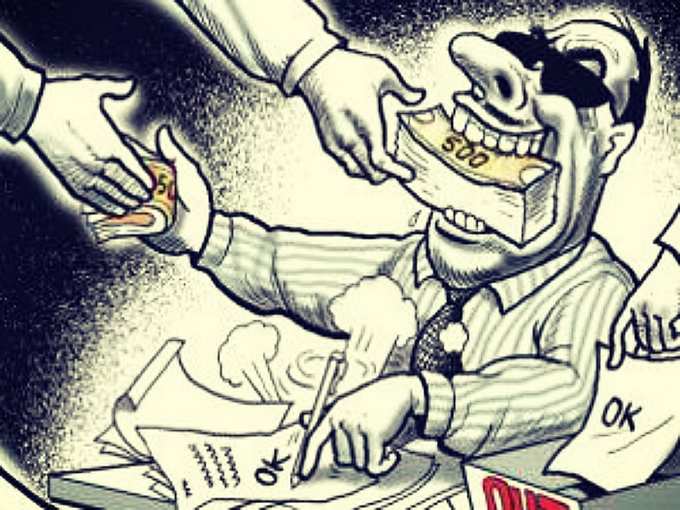
Corruption has been at the forefront of political debate in the country for quite some time now. In the past, the previous Union government had been involved in the several scams which resulted in its worst electoral performance since independence.
At a moral and ethical level, the term corruption implies impairment of moral integrity or virtue. Transparency International, an anti-corruption watchdog, defines it as 'the abuse of entrusted power for private gain.'
At a social level corruption can be seen as either petty or large. Another pertinent question at the social and psychological level is why does corruption occur? The answer may be because of a need to get things done quickly (speed money) in a bureaucratic society. Also, sometimes it arises because it has become ingrained in the institutional processes (Think of the money given for registering a property). It may also arise due be the fact that the economic cost of paying a bribe may be lesser than the actual fine/tax. (Think of motor vehicle challans that one gets away with a payment of 50-100 Rs. to the traffic police). Corruption often manifests itself in various ways. The problem of corruption at the institutional level is that it often percolates at the retail level, and that is why it is imperative to have people who believe in transparency and accountability at the highest levels.
There exists a linkage between corruption and capital flight. The recent December 2014 report by Global Financial Integrity (GFI), a research organization based out of Washington, talks about illicit financial outflows from developing countries. Their estimates suggest that India had the fourth highest cumulative outflows from a period of 2003-12. India’s outflows were 439 billion USD, compared to 1.252 trillion USD for China, 973 billion USD for Russian Federation, and 217 billion USD for Brazil. These outflows represent the lost capital and investment, which could have been utilized for growth and competitiveness within these economies.
Corruption can be tackled only when there is trust in the society and its institutions and when there is a
Finally, another major problem with tackling corruption is its measurement. The best way to do this Is to look for the relative presence or absence of it. The measurement of corruption per say is difficult and hence a perception of corruption is considered to be a robust method to find the relative presence or absence of it in different societies. Transparency International does an annual ranking of states based on the perceived levels of public corruption by businessmen in those states. The 2014 Corruption Perception Index (CPI) looks into the perceived level of public corruption in different states. A higher score on the Index means a relatively corruption free state/society. India had a score of 38 and a rank of 85 out of a total of 175 countries, which signals a high perception of corruption in India. However, last year the rank had improved considerably from a rank of 94 in 2013, which signals a marked decline in the perception of corruption in society. However, the problem is still quite rampant.
Till India looks at corruption from a political viewpoint, it will be difficult to ensure rule of law and reduce the stranglehold of corruption. Much in the future will depend on upright individuals and institutional processes which incentivize non-corrupt behaviour and penalize those wanting to get away with the abuse of power. Transparency and accountability will have to become a norm if developing economies like India want to sustain economic growth and enhance their competitiveness.
(The article is co-authored with Sankalp Sharma, Senior Researcher at the Institute for Competitiveness, India. Amit Kapoor is Chair, Institute for Competitiveness & Editor of Thinkers. The views expressed are personal. Amit can be reached at amit.kapoor@competitiveness.in and tweets @kautiliya)
Image credit: Indiatimes
